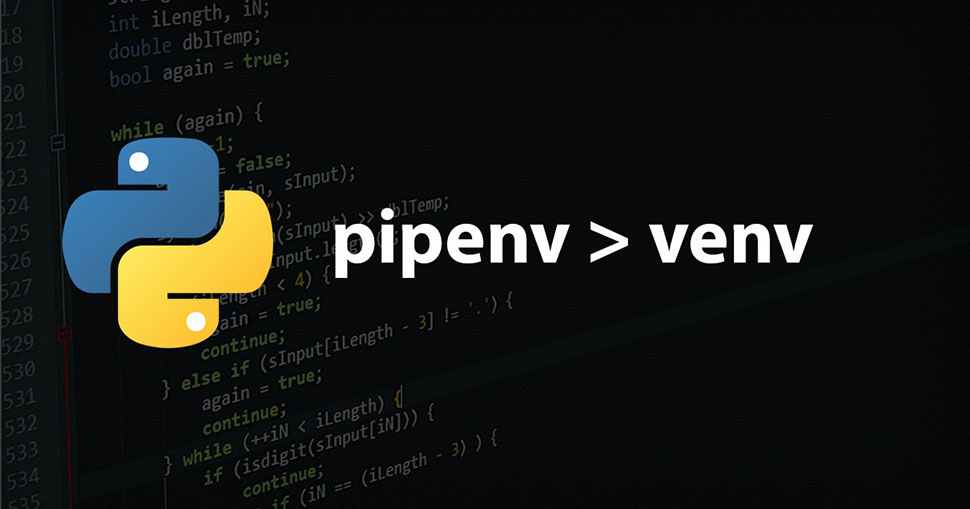
How to install and use Pipenv & Virtual Environments
“You are brains in your head and feet in your shoes, you can steer yourself in any direction you choose!” – Dr. Seuss
Check python and pip version
python3 --version
pip3 --version
Installing Pipenv
pipenv là dependency manager cho các Python project.
Nó tương tự npm của Node.js hoặc bundler của Ruby
pip có thể cài các Python packages, pipenv ở level cao hơn làm đơn giản hóa dependency management cho các trường hợp chung.
Cài Pipenv:
$ pip install --user pipenv
Installing packages for your project
Pipenv quản lý dependencies trên mỗi project
$ cd myproject
$ pipenv install requests
Pipenv sẽ cài thư viện requests và tạo file Pipfile ở thư mục của project.
Pipfile dùng để track các dependencies cần có của project, và sử dụng trong trường hợp re-install hoặc chia sẻ project với người khác.
Output tương tự như dưới:
Creating a virtualenv for this project…
Pipfile: /Users/vietnt/Documents/VietNT/httvhutceoscop/serverless-python-packaging/numpy-test/Pipfile
Using /usr/local/bin/python3 (3.7.7) to create virtualenv…
⠋ Creating virtual environment...created virtual environment CPython3.7.7.final.0-64 in 688ms
creator CPython3Posix(dest=/Users/vietnt/.local/share/virtualenvs/numpy-test-vhxHNUNc, clear=False, global=False)
seeder FromAppData(download=False, pip=bundle, setuptools=bundle, wheel=bundle, via=copy, app_data_dir=/Users/vietnt/Library/Application Support/virtualenv)
added seed packages: pip==20.2.2, setuptools==49.6.0, wheel==0.35.1
activators BashActivator,CShellActivator,FishActivator,PowerShellActivator,PythonActivator,XonshActivator
✔ Successfully created virtual environment!
Virtualenv location: /Users/vietnt/.local/share/virtualenvs/numpy-test-vhxHNUNc
Creating a Pipfile for this project…
Installing requests…
Adding requests to Pipfile's [packages]…
✔ Installation Succeeded
Pipfile.lock not found, creating…
Locking [dev-packages] dependencies…
Locking [packages] dependencies…
Building requirements...
Resolving dependencies...
✔ Success!
Updated Pipfile.lock (444a6d)!
Installing dependencies from Pipfile.lock (444a6d)…
🐍 ▉▉▉▉▉▉▉▉▉▉▉▉▉▉▉▉▉▉▉▉▉▉▉▉▉▉▉▉▉▉▉▉ 0/0 — 00:00:00
To activate this project's virtualenv, run pipenv shell.
Alternatively, run a command inside the virtualenv with pipenv run.
Using installed packages
Tạo file main.py:
import requests
response = requests.get('https://httpbin.org/ip')
print('Your IP is {0}'.format(response.json()['origin']))
Chạy đoạn mã trên:
$ pipenv run python main.py
Kết quả tương tự:
Your IP is 8.8.8.8
Sử dụng pipenv run đảm bảo các installed packages có sẵn với script của bạn.
Nó cũng có thể spawn một shell mới để chắc chắn là tất cả commands truy cập tới các installed packages với pipenv shell.
Lower level: virtualenv
virtualenv được sử dụng standalone, thay cho Pipenv
Cài đặt
$ pip install virtualenv
Kiểm tra
$ virtualenv --version
Using
Tạo môi trường ảo
$ cd my_project_folder
$ virtualenv venv
virtualenv venv sẽ tạo ra 1 folder tại thư mục hiện tại mà chứa Python executable files, và 1 bản sao của thư viện pip dùng để cài đặt các packages khác. Tên của virtual environment (trường hợp này là venv) có thể là bất kể gì; nếu bỏ qua tên thì sẽ đặt các files trong thư mục hiện tại.
Chú ý: venv là quy ước chung sử dụng toàn cầu. Vì nó sẵn có trong các file ignore (ví dụ: .gitignore)
Lệnh này tạo một bản sao của Python ở bất kì thư mục nào đã chạy lệnh, đặt trong một folder tên venv
Ví dụ ở đây là python2.7
$ virtualenv -p /usr/bin/python2.7 venv
Lưu biến môi trường sẽ được vào ~/.bashrc
$ export VIRTUALENVWRAPPER_PYTHON=/usr/bin/python2.7
Kích hoạt môi trường ảo để sử dụng
$ source venv/bin/activate
Tên của virtual environment hiện tại sẽ xuất hiện ở bên trái của dấu nhắc (ví dụ: (venv)Your-Computer:your_project UserName$)) cho biết là nó đã active. Từ giờ khi cài đặt package sẽ được lưu tại folder venv, được tách biệt với global Python installation.
Ví dụ có thể cài đặt package requests:
$ pip install requests
Khi làm việc xong trong môi trường ảo thì có thể tắt nó
$ deactivate
Khi deactivate thì sẽ thoát môi trường ảo và sử dụng Python hiện có trên hệ thống
Để xóa môi trường ảo, chỉ cần xóa thư mục. Ví dụ chạy lệnh: rm -rf my_project
Chú ý khi sử dụng môi trường ảo, bạn sẽ có thể quên và tạo thành rác trên hệ thống. Vì vậy hãy xóa đi khi không sử dụng.
Chú ý: từ phiên bản 3.3, Python đã bao gồm module venv.
Refs
- https://python-guide-pt-br.readthedocs.io/pt_BR/latest/dev/virtualenvs.html